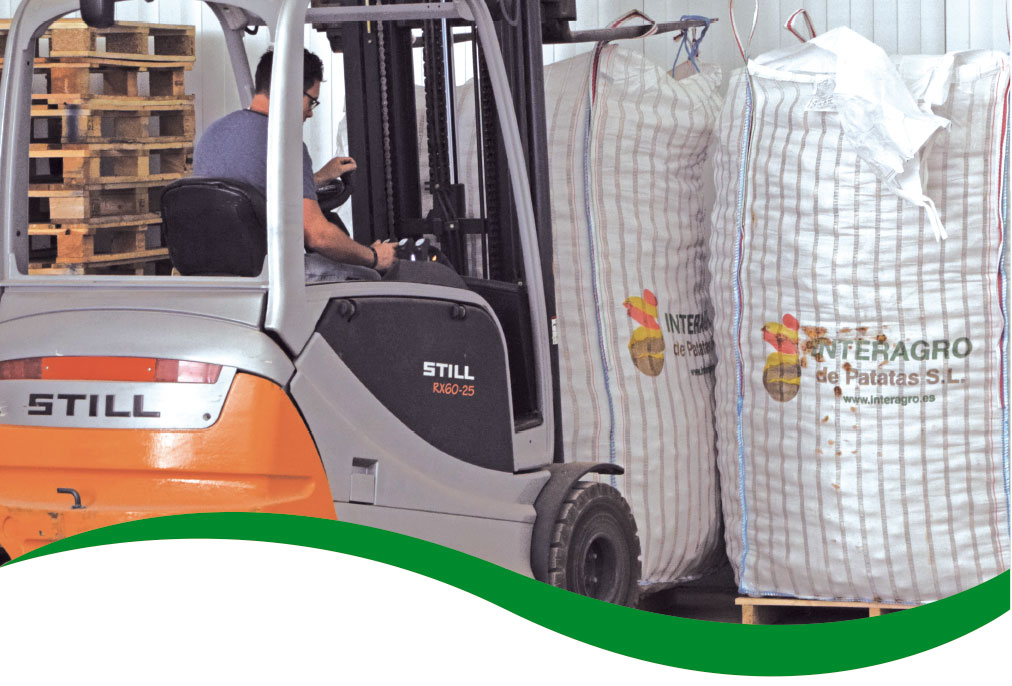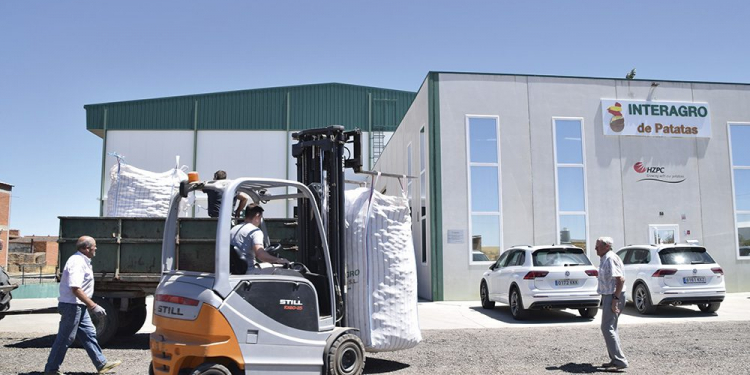Ships remain full of potatoes while produce from France continues to enter. Buyers who work under contract defend a model in which this year they have been charged about 16 cents per kilo
The potato campaign started badly this year and has ended worse, with warehouses full of product and very few sales operations, which are carried out at ridiculous prices. Added to the lack of organization at planting time has been the appearance of the potato, uglier and wrinkled than other years due to storms and heat stroke.
Yolanda Medina, president of the Interprofesional de la Patata, highlights the progress made in ensuring that the Spanish potato, with a darker skin than in other latitudes, is valued more thanks to the fact that its appearance does not influence the quality of the tuber. His intention is to continue committing the food sector to bet on the product of Spain.
The truth is that the French potato has been crossing the border for months and is available on the shelves. There is anger, and farmers who ‘hot’ talk about abandoning the crop. In Castilla y León, where the campaign has been marked by a shortage of potatoes for washing and low prices, many farmers who signed contracts have been able to breathe.
Cosme Catalán, from Interagro de Patatas, highlights that the farmer who works with the company has had a good year for quality potatoes. The producer has received between 16 and 18 cents per kilo and has been satisfied.
The farmers who had potatoes for a destination other than washing did have a low price, but in general the contracts have worked. Now corresponds the liquidation and, secondly, raise the next sowings, with a similar surface. About 550 hectares in Castilla y León and more than a thousand in the whole of Spain.
“The phase of visiting the lands where they are going to plant is opening for us; get to know the plots and see which varieties are most suitable,” he says. It is not a trivial matter, since it advocates specializing and obtaining a potato of extraordinary quality, both visually and gastronomically. It is a new scenario in which everything is no longer valid and all the pins that lead us to quality potatoes must be adjusted to the maximum.

“Interagro de Patatas is still open to talking to new producers, as long as they are professionals willing to accept the rules of the game,” says Cosme Catalán.
Spanish potato, quality potato
When there are problems with potatoes, the sector usually looks to distribution, and more specifically to Mercadona, which has a market share of over 25%. But the company defends its commitment to the local product, which makes special sense in the case of potatoes.
“In Castilla y León, in the 2021 fresh potato campaign we have bought more than 37,000 tons,” they point out from Juan Roig’s company.
It is a figure very similar to that of 2020, with the difference that this time consumption has been lower. In addition, “our Specialist Suppliers have paid above the sector average depending on the varieties (Soprano, Monalisa and Lucinda…)”, they point out.
“This is related to our commitment to further improve our potato quality, which is why we are studying improving the attributes of the tuber, both in bulk and in mesh,” according to customer preferences.
Always Spanish potato? In Mercadona they assure that every year, between April-May and October-November, and when the product has the quality that the customer demands, they offer 100% Spanish potatoes. All the suppliers, with whom it maintains stable relationships, are Spanish, such as Patatas Meléndez, Patatas Hijolusa, Udapa, Patatas Gómez…
“These, in turn, maintain stable and trusting relationships with local farmers, thus consolidating a Sustainable Agrifood Chain Model that we are proud of,” they point out. Thus, the supermarket chain only imports potatoes from October or November to April or May, “and once we have exhausted the volume of Spanish production.”

At the same time, as an example of commitment to local products, the company offers Sour potatoes from September to April, which practically completes the calendar, since there are potatoes from Andalusia and Murcia from March.







